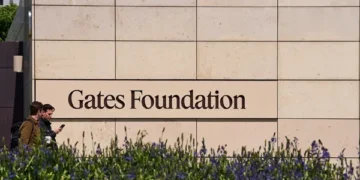Blitz Bureau
TUNIS: A judge in Tunisia handed down lengthy sentences to prominent politicians and at least one leading journalist in a move criticised by a media union and leading opposition parties as the latest move targeting critics of President Kais Saied, reported africanews.com.
The website report said among those sentenced include 83-year-old Rached Ghannouchi, the country’s most prominent Opposition leader, who has been behind bars for nearly two years.
Ghannouchi, the co-founder of the Islamist movement Ennahda and Tunisia’s former Assembly Speaker, was sentenced to an additional 22 years in prison for undermining state security. He boycotted the proceedings against him.
Ennahda, said the report, condemned the trial as politically motivated and said the prosecutions were “aimed at revenge, violating basic human rights and freedoms, undermining the rule of law and blatantly politicizing the judiciary.” The National Salvation Front, a coalition of Opposition parties that includes Ennahda, said in a statement that the sentences issued against bloggers, politicians and former Government officials totaled more than 760 years and marked “one of the darkest periods” for the country’s judicial branch, which has seen judges dismissed and power wrested from it by Saied’s executive branch.
“This particular chamber is becoming a specialised tool for issuing harsh sentences against politicians,” said one of its leaders, Ahmed Nejib Chebbi.
The charges stem from a 2019 case against a media company that provided services for Ennahda during that year’s presidential elections. Those involved are accused of defamation, spreading falsehoods, money laundering, undermining state security and illegally accepting funds from abroad.
Human rights groups have criticised such cases as a way to target Saied’s opponents. Saied won a second term last October in a landslide election while his leading opponents, including Ghannouchi, languished in prison, according to the published report.
“These rulings bring Tunisia back to a period the people sought to leave behind through their revolution,” an Ennahda statement said, referring to the 2011 ouster of Zine El Abidine Ben Ali, the first Arab dictator toppled as part of the Arab Spring uprising that swept the region that year.
In the years that followed, the North African nation was seen as a success story for its transition to democracy, rewriting its Constitution and winning a Nobel Peace Prize for political compromise. But signs of authoritarianism have re-emerged since Saied took power in 2019, said the report.
Throughout his tenure, it said, Saied has suspended Parliament, rewritten the Constitution to consolidate his power and arrested politicians, activists and journalists who criticised him.

































